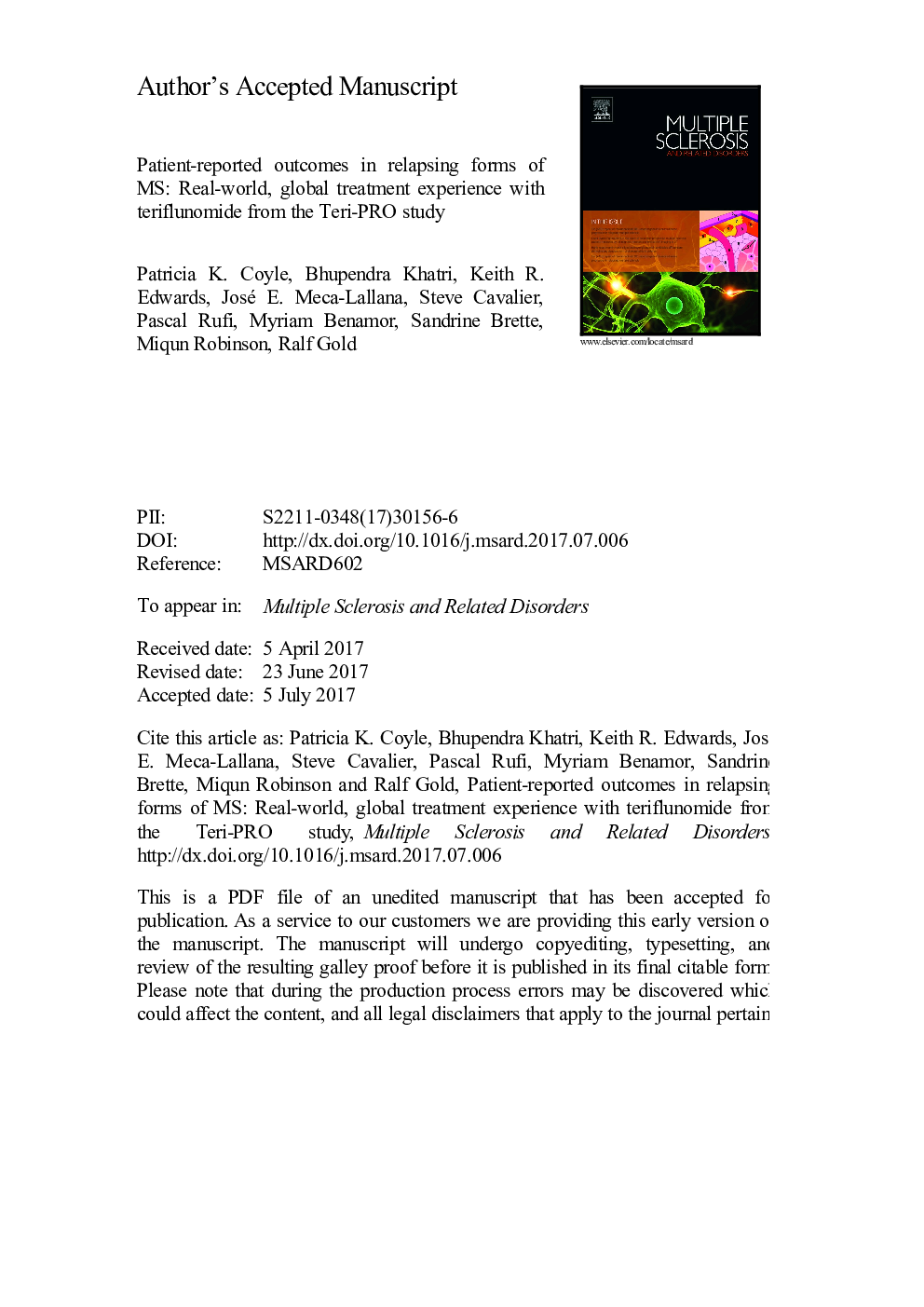| Article ID | Journal | Published Year | Pages | File Type |
|---|---|---|---|---|
| 5590849 | Multiple Sclerosis and Related Disorders | 2017 | 37 Pages |
Abstract
Patients reported high treatment satisfaction with teriflunomide, with switchers also reporting improved treatment satisfaction vs baseline. High treatment satisfaction in patients with RMS may lead to improved adherence, and hence treatment outcomes.
Keywords
RRMsnonsignificantMusiQoLTSQMRelapsing-remitting MSPDDSSDMTMSPsSymbol Digit Modalities TestMedDRADMTsEDSSALTDMFRMSQuality of lifeAesAlanine aminotransferasestandard deviationEffect sizeteriflunomidebaselinedisease-modifying therapiesDisease-modifying therapydimethyl fumarateMedical Dictionary for Regulatory ActivitiesTreatment satisfactionSpearman's rank correlation coefficientAdverse eventsconfidence intervalExpanded Disability Status ScaleMultiple sclerosisPatient-reported outcomespatient-reported outcomePRO
Related Topics
Life Sciences
Biochemistry, Genetics and Molecular Biology
Genetics
Authors
Patricia K. Coyle, Bhupendra Khatri, Keith R. Edwards, José E. Meca-Lallana, Steve Cavalier, Pascal Rufi, Myriam Benamor, Sandrine Brette, Miqun Robinson, Ralf Gold, for the Teri-PRO Trial Group for the Teri-PRO Trial Group,
